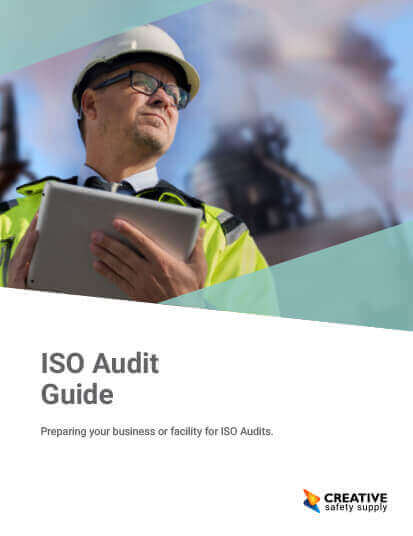
In today's globalized marketplace, businesses face increasing pressure to meet stringent quality, safety, and efficiency benchmarks. To navigate this landscape successfully, many organizations turn to ISO standards - a set of internationally recognized guidelines designed to ensure consistency, safety, and quality across various industries. In this article, we'll explore the pivotal role ISO standards play in the business world, and why adherence to these benchmarks is not just a choice, but a strategic imperative.
Ensuring Consistency and Quality
ISO standards serve as a roadmap for businesses to establish and maintain consistency in their operations. Take, for example, ISO 9001, which focuses on quality management. This standard outlines key principles like customer focus, process approach, and continuous improvement. By adhering to these principles, businesses can ensure that every product or service they deliver meets a predefined level of quality. This consistency is not only crucial for building trust with customers but also for creating a reliable brand identity in the marketplace.
Consider a manufacturing company that follows ISO 9001. They have documented processes for everything from procurement of raw materials to final product inspection. These processes are regularly audited and refined, ensuring that each product leaving the factory meets the same high standard. This level of consistency instills confidence in customers, as they know they can expect a certain level of quality every time they engage with the company.
Global Recognition and Market Access
ISO standards are universally recognized and respected. When a business achieves ISO certification, it's a testament to their commitment to meeting or exceeding international benchmarks. This certification serves as a passport to global markets. For instance, an ISO 14001 certification for environmental management demonstrates a company's dedication to sustainable practices. This can be a crucial factor for international partners and customers who prioritize environmentally responsible business partners.
Imagine a software development company that obtains ISO 27001 certification for information security management. This certification is a clear indication to potential clients, especially those in industries like finance or healthcare, that the company takes data security seriously. It opens up opportunities to work with clients who have strict compliance requirements, potentially leading to lucrative contracts that would have been out of reach without ISO certification.
Enhancing Efficiency and Productivity
ISO standards are designed to help businesses work smarter, not harder. ISO 50001, for instance, focuses on energy management. By implementing this standard, businesses can identify areas of energy waste and implement measures to reduce consumption. This not only contributes to environmental sustainability but also leads to significant cost savings. Moreover, the structured approach provided by ISO standards encourages businesses to continually seek ways to optimize their processes, leading to increased overall efficiency.
Consider a logistics company that adopts ISO 45001 for occupational health and safety. By meticulously identifying potential hazards and implementing preventive measures, the company reduces accidents and injuries among its workforce. This not only safeguards employees but also leads to reduced downtime, lower insurance costs, and improved overall operational efficiency.
Mitigating Risks and Ensuring Compliance
The business landscape is rife with legal and regulatory complexities. ISO standards provide a structured framework for compliance, helping businesses navigate this challenging terrain. For example, ISO 22000 for food safety management outlines best practices for handling, storing, and distributing food products. By following these guidelines, food-related businesses can ensure they meet or exceed regulatory requirements, reducing the risk of fines, lawsuits, and damage to their reputation.
Imagine a pharmaceutical company that adheres to ISO 13485 for medical device quality management. This standard not only ensures that the company's products meet rigorous quality standards but also aligns with regulatory requirements in many countries. This means the company can confidently expand its market presence, knowing that its products comply with the diverse regulatory landscape of the healthcare industry.
Cultivating a Culture of Continuous Improvement
ISO standards promote a culture of continuous improvement. Through regular audits and assessments, businesses are encouraged to evaluate and refine their processes. This commitment to ongoing enhancement not only drives innovation but also positions companies to adapt swiftly to emerging trends, technologies, and customer expectations.
In an increasingly competitive and interconnected world, adherence to ISO standards is not merely a desirable trait, but a critical strategic decision for businesses. From ensuring consistent quality to enabling global market access, ISO standards provide a solid foundation for success. By embracing these internationally recognized benchmarks, businesses not only meet the demands of the present but also position themselves as leaders in shaping the future of their industries.
Similar Questions
- Is it Worth it for Small Businesses to Invest in ISO Certification?
- What Role does ISO play in Global Trade and Market Access?
- How does ISO certification impact product quality?
- What Are Some of the Key Differences Between ISO 9001 and ISO 14001?
- What are some real-world examples of ISO standard implementation?
- What Are the ISO Standards for Food Safety?
- How does ISO 9001 relate to quality management systems?
- How can ISO 45001 improve workplace safety and health?
- How does ISO 50001 drive energy efficiency and sustainability?

